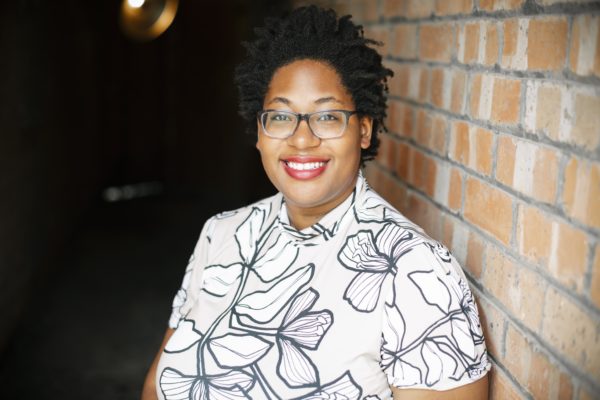November 3rd 2020 in Cundill history hub
Rethinking the foundations of British history

Historian and New Generation Thinker Christienna Fryar convenes the first MA in Black British History in the UK. Why have history departments in this country been such inhospitable places for this study to flourish?
Last month, the Goldsmiths History Department launched its new MA in Black British History, the first taught masters' programme of its kind in the UK. I convene this program, and after a year of finalizing details, talking to applicants, and planning around the COVID-19 pandemic while in lockdown, it has been thrilling to welcome our first cohort of 21 students.
In many ways, this is an unusual masters’ programme. While many masters' programmes assume students will have familiarity with the subject matter, often from previous undergraduate study, we do not. Indeed, we cannot, because at many UK universities, it is still impossible for students to undertake any sustained coursework in this field.
How can we understand the lived experiences of Black people separate from global and imperial forces?
University history departments in the UK have been inhospitable places for Black British history to flourish. You could start to explain this by looking at the shape of the history profession here. In Britain, there has long been a stark division between British imperial history and the history of the British nation, often figured as British "domestic" history. This practice sits in significant contrast to my own training in the US in the mid-to-late 2000s, where British history was essentially synonymous with a kind of imperial history that conceived of metropole and colony together. Black British history requires a combination of both approaches. How can we understand the lived experiences of Black people in Britain separate from an understanding of the global and imperial forces that created the very categories of race, subjecthood, empire, and nation? Conversely, imperial and global histories aren't automatically British histories, let alone Black British history: they too need to remain conversant with the political, social, cultural, and economic histories of the places where Black British people live.
There have been conceptual barriers too, namely the pervasive belief across British cultural and intellectual life that race is a matter for the Americans to handle. This refusal to understand race as a salient category in the UK shows up in myriad ways: in explicit dismissals of the idea that structural racism shapes life in Britain; in a tendency for any Black history that is taught in UK schools and universities to be African American history; and in the hints that there couldn't possibly be enough Black British history to warrant extensive study.
The situation is changing. There are Black studies programmes at Birmingham City, Bristol, and Nottingham, along with Chichester’s MRes in the History of Africa and the African Diaspora. Academics are listening more to community historians who have been preserving Black British histories for decades. Yet there is much work to do, and the MA in Black British History is just one piece of the puzzle. We hope that schoolteachers and journalists and sociologists and others join us alongside historians hoping to go on to PhD study. And we also hope to be a place where Black British students, some learning about the history of their communities for the first time, lead the way in rethinking the very foundations of British history.
Christienna Fryar is a historian of modern Britain, the British Empire, and the modern Caribbean. Currently, she is Lecturer in Black British History at Goldsmiths, University of London, where she convenes the MA in Black British History at Goldsmiths. She is also one of the 2020 BBC Radio 3 New Generation Thinkers.
Share this
Archive
2023: September (2) October (2)2022: April (1) August (3) December (2)
2021: August (1) September (1) December (3)
2020: August (1) October (2) November (2)
2019: September (3) November (2)
Recent Hub Contributions
Partnership Focus: Literary Review of Canada
Partnership Focus: Bookshop.org
Partnership Focus: HistoryExtra
15th Anniversary Special: Alan Taylor
15th Anniversary Special: Mark Gilbert
15th Anniversary Special: Peter Frankopan
15th Anniversary Special: Camilla Townsend